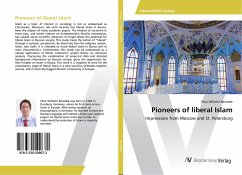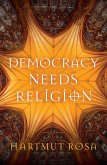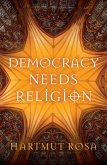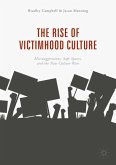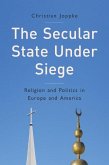Islam as a topic of interest in sociology is not as widespread as Christianity. Moreover, not until recently has liberal Islam in Russia, been the subject of many academic papers. The shadow of socialism in times past, and recent interest on fundamentalist Muslim movements, has caused social scientific observers to forget about the potential for liberal Islam in Russian society. This study treats the notion of "liberal" through a systemic perspective. By observing how the religious system, Islam, sees itself, it is intended to reveal liberal Islam in Russia and its main characteristics. Furthermore, this study can be understood as a unique application of Niklas Luhmann's system theory on interview analysis. Processing the combination of empirical data and detailed background information on Russian society, gives the opportunity for new insights on Islam in Russia. This work is a snapshot of time for the evolutionary stage of liberal Islam in a post-socialist, Orthodox majority society, which hosts the biggest Muslim community in Europe.

